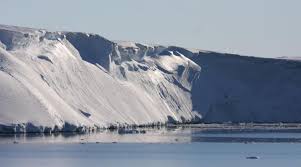LONDON, 21 May, 2016 – One of Antarctica’s great glaciers could become unstable if global warming continues at the present pace. As warm seas wash the ice shelf, the land-based mass of ice could begin to retreat, cross a critical threshold in the present century and then withdraw 300 kilometres inland.
In the course of doing so it would spill tremendous quantities of water into the oceans: enough to raise global sea levels by 2.9 metres and threaten cities that are home to billions.
And here is the bad news: glaciologists have known for decades that West Antarctica’s ice sheets are unstable. But the Totten glacier is part of the East Antarctic Ice Sheet, a mass of ice most researchers had believed to be stable and highly unlikely to lose much of its ice, even in a warming world.
Scientists from Australia, New Zealand, the US and Britain report in Nature that they explored the underlying geology of the Totten glacier to build up a picture of its advance and retreat over many millions of years.

